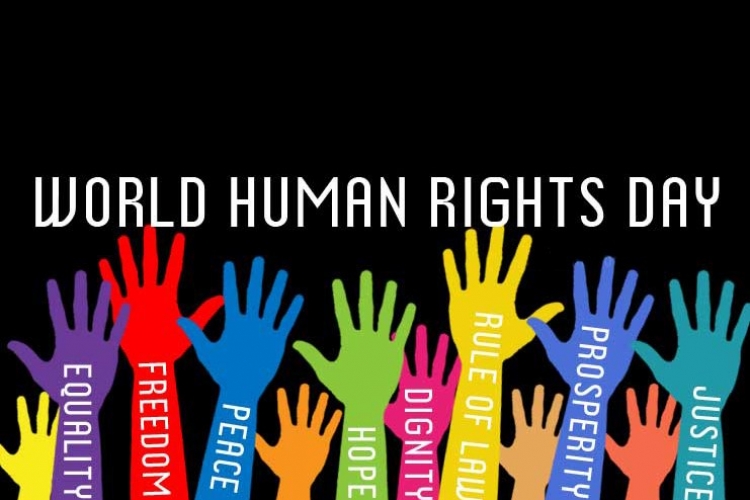HUMAN RIGHTS DAY
IN NEWS
The world celebrates International Human Rights Day on 10th Decemeber . On this day in 1948, the United Nations General Assembly — then headquartered in Paris — ratified the Universal Declaration of Human Rights (UDHR). This year it will be the 70th anniversary of Universal Declaration of Human Rights. This year the Human Rights Day would be celebrated with the theme “Stand Up For Human Rights”.
OBJECTIVES OF HUMAN RIGHTS DAY
Human rights day is celebrated to improve the physical, social, cultural and spiritual well being and welfare of the vulnerable group of people globally. The objectives are:
- To promote the awareness about human rights among the people all around the world.
- To emphasize the endeavors of the United Nations General Assembly in order to progress the overall human rights conditions.
- To get together and celebrate in cooperation to discuss and highlight the specific issues of the human rights.
- To encourage the vulnerable group of people like women, minorities, youth, poor, disabled person, indigenous people and etc to take part in this event celebration and political decision-making.
HUMAN RIGHTS IN INDIA
India’s judiciary is the first of its vibgyor colours. The Supreme Court’s emphatic position on the right to privacy, among others, stands out. As does its sage extension of the deadline for those contesting their non-inclusion in the National Register of Citizens for Assam.
- Justice S.K. Kaul’s order in the Madras High Court in the Perumal Murugan case, upholding the freedom of a writer to write, is something the UDHR would hail.
- Next, our Parliament, which has given us the Right to Information Act, following campaign advocacy by Aruna Roy and her colleagues.
- Is that part of our media which will not be scared or suborned.
- Our security personnel, protecting our safety and our human rights activists protecting our liberty.
- Our creative cultural icons who will not surrender their autonomy.
- Our remarkable Constitution, B.R. Ambedkar’s legacy.
- Finally, India’s free elections are a ‘UDHR asset’.
NHRC
The National Human Rights Commission (NHRC) of India is an autonomous public body constituted on 12 October 1993 under the Protection of Human Rights Ordinance of 28 September 1993. It was given a statutory basis by the Protection of Human Rights Act, 1993 (TPHRA).
MEASURES TO OVERCOME LIMITATIONS IN NHRC
- The effectiveness of commissions will be greatly enhanced if their decisions are immediately made enforceable by the government.
- Governments should seriously consider the recommendations made by NHRC as NHRC’s orders are passed by persons who had long training and experience as judges of the Supreme Court and high courts.
- Also, a large number of human rights violations occur in areas where there is insurgency and internal conflict. Not allowing NHRC to independently investigate complaints against the military and security forces only compounds the problems and furthers cultures of impunity. It is essential that commission is able to summons witnesses and documents.
- As non-judicial member positions are increasingly being filled by ex-bureaucrats, credence is given to the contention that NHRC is more an extension of the government, rather than independent agency exercising oversight.
- The present arrangement of having to reply on those on deputation from different government departments is not satisfactory as experience has shown that most have little knowledge and understanding of human rights issues.
WAY FORWARD
An important point to be noted is that Human Rights Commissions are not the panacea for all problems related to the subject in a society. They tend to be effective only under a given set of circumstances, but most importantly, a lot depends on the level of funding, functional independence, and institutional autonomy guaranteed to the HRC. It is nearly 15 years since the National Human Rights Commission (NHRC) was established in India through the adoption of the Protection of Human Rights Act, 1993, by Parliament. Now is a good time to examine not only the functioning and effectiveness of the NHRC and the SHRCs but also to identify the central challenges relating to human rights in the future and work towards tackling them. It is important that Human Rights Commissions (HRCs) succeed in their efforts to promote and protect human rights.


 POLITICAL SCIENCE & IR HYBRID BATCH ORIENTATION : 20-11-2024
POLITICAL SCIENCE & IR HYBRID BATCH ORIENTATION : 20-11-2024